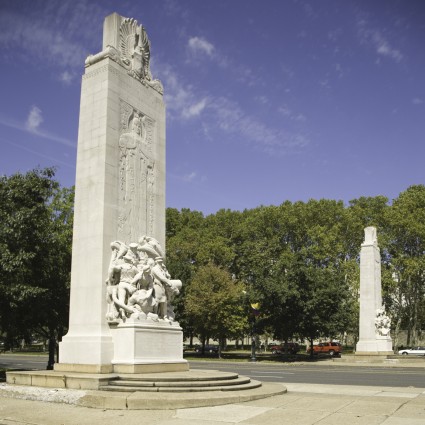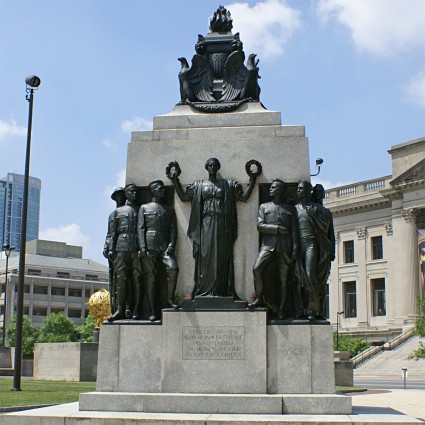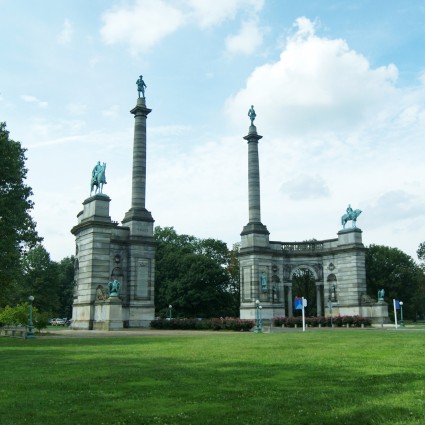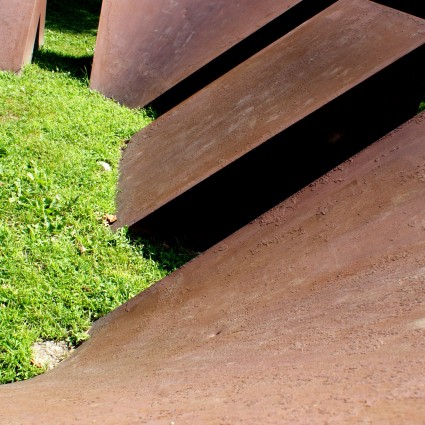At A Glance
One of the first monuments to Lincoln following his assassination in 1865
Shows Lincoln signing the Emancipation Proclamation
Rendered in the naturalistic style that was prevalent in mid-19th-century portraits
Philadelphia was one of the first cities in the nation to erect a monument to Lincoln after he was assassinated on April 14, 1865. The Lincoln Monument Association, chaired by Mayor Alexander Henry, was formed on May 22, 1865, and in a little over a year raised $22,000. Sculptor Randolph Rogers was awarded the commission for the memorial.
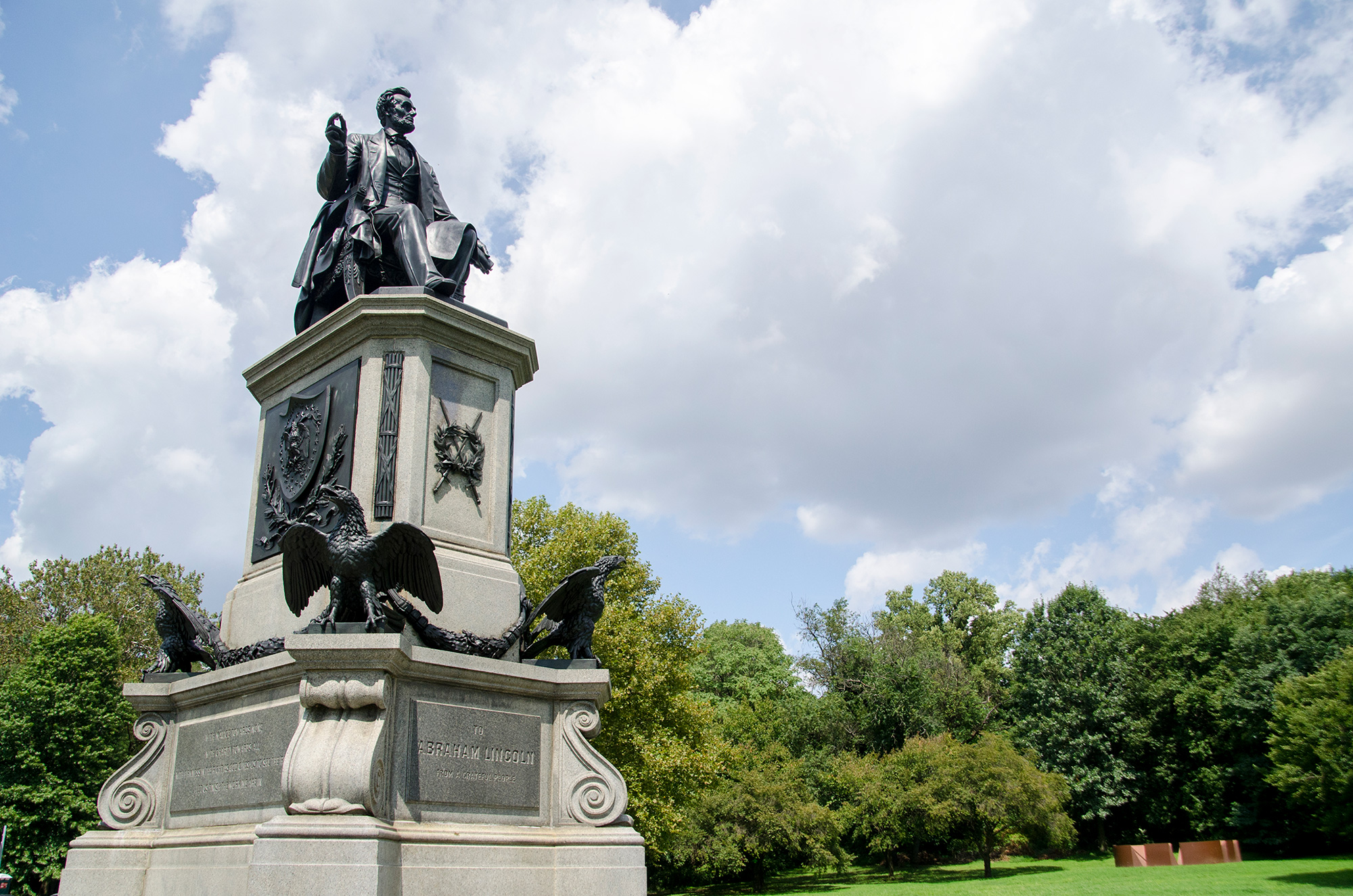
Rogers rendered Lincoln in the naturalistic style that was prevalent in mid-nineteenth-century portraits. Seated, with quill in hand, Lincoln is shown just having signed the Emancipation Proclamation. The work was enthusiastically received by 50,000 people at its unveiling on September 22, 1871. In 2001 the monument was moved from its location on an island in the midst of Kelly Drive to a more pedestrian-oriented site just east of the roadway.
Adapted from Public Art in Philadelphia by Penny Balkin Bach (Temple University Press, Philadelphia, 1992).
Voices heard in the Museum Without Walls: AUDIO program: Kirk Savage wrote Standing Soldiers, Kneeling Slaves: Race, War, and Monument in 19th Century America. Harold Holzer was the co-chairman of the United States Abraham Lincoln Bicentennial Commission. Millard F. Rogers, Jr. (1932-2014) is the author of Randolph Rogers: American Sculptor in Rome. | Segment Producer: Jonathan Mitchell
Museum Without Walls: AUDIO is the Association for Public Art’s award-winning audio program for Philadelphia’s outdoor sculpture. Available for free by phone, mobile app, or online, the program features more than 150 voices from all walks of life – artists, educators, civic leaders, historians, and those with personal connections to the artworks.
This artwork is part of the Along Kelly Drive tour
